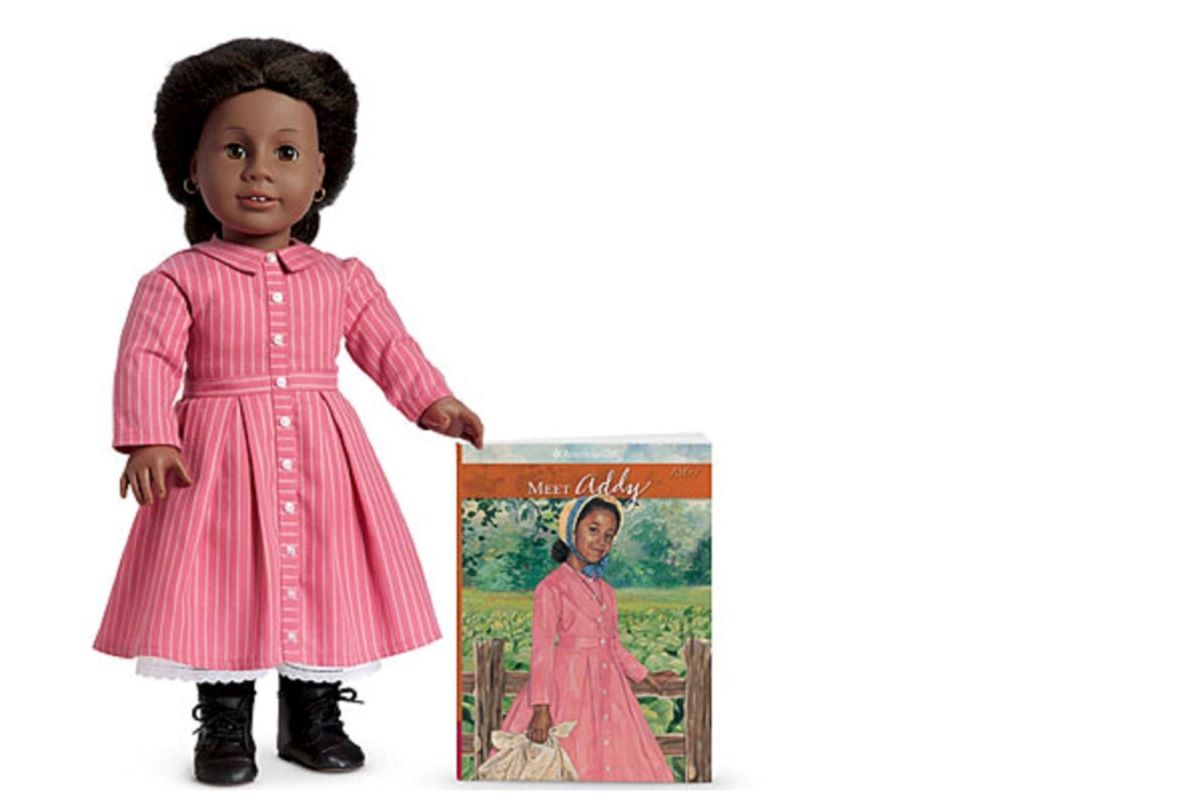TikTok Creator Brings Addy the American Girl Doll (and Her Controversy) Back into the Spotlight
Did American Girl's first Black doll have to be a slave?

The American Girl fandom is thriving on TikTok. With this platform, many people have been sharing their thoughts on the complicated relationship they had with the company and their dolls, especially their famous historical line, and that includes Addy.
TikTok creator Abaetol has been one such voice in the community, bringing attention to the many complexities of Addy, American Girl’s first African American doll.
Addy the American Girl
Addy was released in the fall of 1993 and is similar to many historical American Girls before her, in that she has a series of books that tell her story.
However, unlike many of the other historical American Girls (who ranged between middle and upper class), Addy was a slave. Addy’s story starts in 1864, with her whole family being enslaved on a Tobacco plantation before being separated and sold. Addy escapes to the north with her mother but is not reunited with her brother and father until later books in the series.
Unfortunately, the racism doesn’t end with Addy’s status as a slave. While Connie Rose Porter, the author who wrote the Addy books that accompany the doll, had a mostly positive experience working on the series, the original illustrator of the books, Melody Rosales, did not.
Controversey
Rosales was one of the main creators of the Addy doll books and modeled Addy after one of her own daughters, Harmonia. Her illustrations were vital to bringing the story of Addy to life and showing the complexities of life as an escaped slave.
However, she also had to fight with the Board on many occasions and had to defend her decision to portray escaped slaves as “not smiling” due to being exhausted. Rosales states on her website that “Ms. Rowland (Pleasant Co. CEO) wanted all of her American Girl heroines to be cookie-cut-outs from the same experiences, sans era, location and ethnicity.”
Rosales was fired after illustrating three books in the series and her illustrations were eventually replaced in later versions of the books. She has since gone on to illustrate many other books and has shared her side of the story on Slate, which was a major resource for Abaetol’s TikToks on the history of Addy the doll.
In the time since Addy’s creation, many have poked fun at American Girl’s decision to make their first African-American doll a slave. Both SNL and Big Mouth have featured parodies of American Girl where they call out the racism of Addy being the only Black Girl AND being a slave.
American Girl’s reasoning for Addy being a slave was that “slavery was the foundation for everything that came after it and must be tackled first in order for children to understand more recent history.” They’re not wrong about that. The bigger problem is that for decades, Addy was the only Black American Girl doll (the Melody Ellison doll was introduced in 2016 and is centered on the Civil Rights era, while Claudie was only introduced last year and is based on the Harlem Renaissance).
Abaetol acknowledges that the American Girl company probably didn’t understand what they were getting into when making a Black doll, despite the research and the hiring of a Black writer and illustrator.
Yet, despite all the justified criticism, many people note that Addy was an important part of their childhoods. Erica Richardson, an intern at the National Museum of American History, wrote how American Girl did a better job at teaching her about slavery than some of her teachers, who claimed slaves were “happy.” Many people who watch Abaetol’s videos have also commented that Addy and other American Girls were formative to them and helped make them who they are.
I’m certainly one of them; I read all the historical books I could get my hands on and Addy’s always stuck with me.
These conversations are likely going to increase in the coming months; American Girl is one of the properties that Mattel is looking to turn into its next movie franchise. This is coming at the same time as Historical American Girl books are reportedly being banned in Florida.
In any case, it’s good to see more people learning about the complexities and controversies of American Girl and opening conversations about representation.
(featured image: Mattel)
Have a tip we should know? tips@themarysue.com